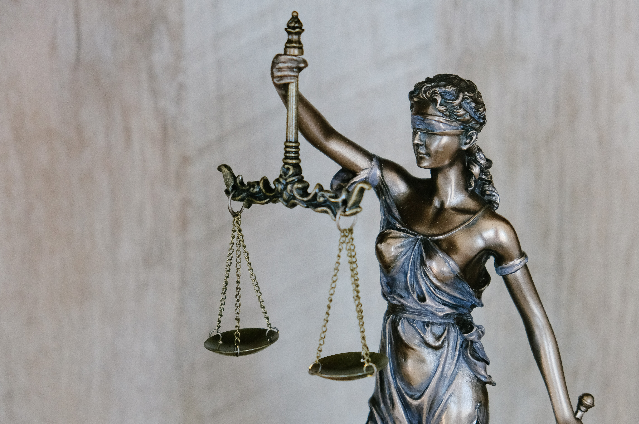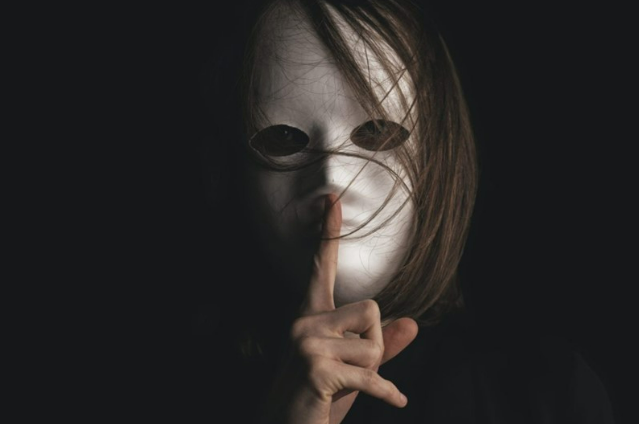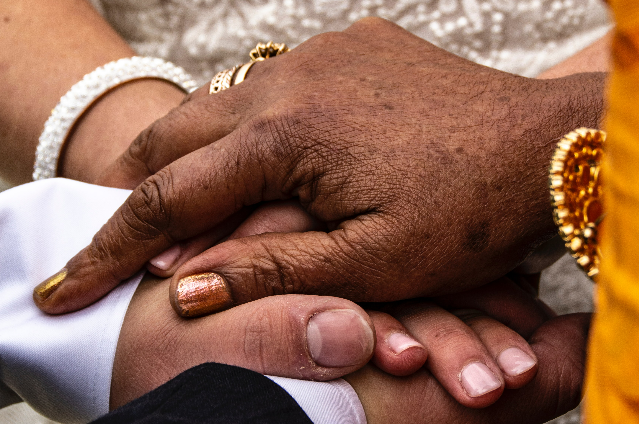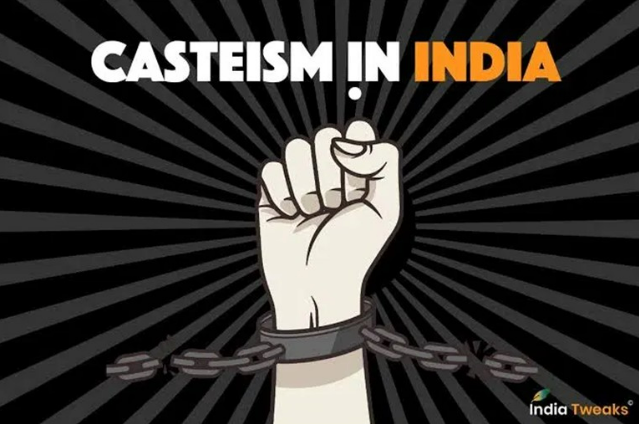Introduction
"Whenever I see a taboo, I just think that's something we need to drag screaming out into the light and discuss. Because taboos are where our fears live, and taboos are the things that keep us tiny. Particularly for women." ~ Caitlin Moran
They claim that everyone has the right to choose, yet this is not the case in India when it comes to marriages. People have begun to speak up about their privileges and options, yet caste, class, gender, and religion remain profoundly rooted in people's minds and in societal structure. Young Indians are frequently pressured to marry in the sake of ‘settling down' or finding the 'proper match,' which must be 'right' in the eyes of their parents and society.
Most marriages in our country are controlled by the personal laws that govern each faith. However, in exceptional cases, such as when such matrimonial relations are between two people of separate castes, the Special Marriage Act takes precedence. Since the beginning of mankind, our society has struggled under the restraints of the caste system. On the basis of caste, there has been severe unequal treatment. The same has been enforced by exceedingly strict rules. Despite the fact that we have progressed a very long way in creating liberal perspectives, orthodox attitudes and beliefs remain ingrained in modern culture.
In today's culture, mixing of people from different castes occurs in a variety of settings, including education and the workplace. As a result, when marital arrangements include such intermingling, it should not be a cause for alarm. The Special Marriage Act stipulates that every marriage solemnised under this law must meet certain requirements. This law provision is a significant step in creating a "broad-minded society." Inter-caste marriage is not prohibited under Hindu law, however it is explicitly prohibited under Muslim law.
Defining what exactly is a taboo?
A taboo is a social activity prohibition centred on the mistaken notion that such behaviours are either too sacred or too harmful for humans to practice. Religious views, social norms, and cultural behaviours all contribute to the strength of taboos. They emanate great emotional energy and are practised all throughout the world. It's no wonder, then, that breaking taboo is regarded as an act of deviance and is punished by society. No civilization can advance, unless it summons the courage to examine taboos, especially those that violate human rights, dignity, and liberal values.
Factors of match-making in India and people from different caste, class and religion don't have a choice with whom they want to marry
Individuals do not have a say in the community they are born into, but they do have a say in who they marry. Yes, both practically and lawfully. But what about in terms of society? That is controversial! We proclaim ourselves a democratic, secular country all the time, so why do we, as a society and as people, forget what it means to live in a secular democracy? The Preamble to the Constitution's Forty Second Amendment declared India to be a secular republic.
Is this still true after so many years of having a democratic government? Yes, in some places, but not everywhere. In matchmaking, caste, class, gender, and religion are all important considerations. When it comes to gender, interfaith, or caste marriages, is the individual's preference honoured and accepted by society? Most of the time, no, sometimes due to society, sometimes due to laws. We still don't have same-sex marriage rights as a country. And we're all aware of the 'Love Jihad' laws that have been enacted in a number of states. In Indian society, caste and religion are connected. These two systems establish a barrier between communities, causing division, animosity, and friction among diverse social groupings as a result of this gap. The fundamental issue in Indian society is caste segregation, not class separation. The Indian society's rule of land is marriage within the same caste and religion.
Marriages between people of various castes and religions are difficult to imagine and socially inappropriate. Every such marriage carries a societal shame, making it difficult for the partners to stay together. Modernization, westernisation, democratisation, and growth have all brought good changes to Indian society recently. The main goal of this examination is to have a better understanding of the social, legal concerns and as taboos that arise in inter-caste and inter-religious marriages in India.
The struggle that followed for caste system and ‘sanskara’ in Hindu mythology
Discrimination based on caste and religion is putting a roadblock to India's development. For millennia, India's society has been split along caste and religious lines. The caste system is so deeply ingrained in Indian culture that it will take many years for them to shake it. A custom that has existed in our culture from its inception cannot be completely abolished in barely 200 years.
Even today, India is battling to overcome this societal calamity. And this conflict is completely justified. History shows that attempts were made not just by Indian revolutionaries, and also by the British during their rule, to rescue India from the shackles of caste, untouchability, and race prejudice. When it relates to marriages among various castes and religions, most people consider it taboo. However, certain social reformers feel that inter-caste and inter-religious marriages are very important in order to break down this barrier of caste and religion. Marriage is viewed as a sacramental in India, as well as a social institution. It is regarded as one of the most important 'sanskara' in Hindu mythology.
With the passage of time and the passage of eras, Indian society has evolved to a certain extent. With many social reforms on the way, India's cities have seen a significant increase in inter-caste and inter-religious marriages, allowing groups and castes to coexist.
Inter-Caste marriages examples of various incidents that have happened so far for honour killing
The question of 'honour' affects more than simply ruling caste families. The concept of 'honour' is used to oppress women and limit their freedom, particularly when it comes to the choice to choose their life mates. One such incident is of Pranay Perumalla, a young Dalit, was murdered in 2018 for marrying the daughter of a man from the Vaishya community. While Pranay was killed, Vaishyas mocked Amrutha, Pranay's wife, on social media for being an "unfaithful daughter." Gaddi Kumar, a Yadav, was discovered dead in Shankarapatnam, Karimnagar district, in the same year. He was rumoured to have been in love with a Goud girl.
The girl went on to say that he had been murdered by her relatives. Sandeep, a Dalit man, was assaulted by Madhavi's father, Manohara Chary, at Gokul Theatre in Hyderabad, for marrying an upper-caste woman. Dr. B R Ambedkar was the first Indian to speak out against caste injustice and for women's independence. His unique approach of seeing society through marriage ties in a family is a unique way of thinking about caste and gender issues. He argued that inter-caste marriages should be encouraged in order to eliminate the patriarchal structure based on caste.
If we collect statistics across the country, we will discover a large number of people who have died as a result of 'honour killings.' Parents nowadays compare the financial situations of the bride and groom before deciding to marry. When it concerns to Dalit marriages, however, women are abandoned and men are slaughtered. The Supreme Court in a judgement held that “If two adults get married by consent, whatever be their caste, religion or gotra, no one can interfere in such a marriage, neither the relatives nor panchayats.” The decision was made during a hearing of a petition brought in 2010 by the NGO Shakti Vahini against khap panchayats. The court postponed a decision in the case, stating that it will provide a detailed decision.
Causes of Honour killings and role of Khap Panchayat
One of the reasons for honour crimes is women's shifting cultural and economic position, as well as women rebelling against their male-dominated culture. Honour killings are common in certain Western cultures as women want greater independence and the freedom to live their own lives. Honor crimes are regarded as less serious than other types of murder in some societies because they stem from long-standing cultural customs and are thus regarded proper or legitimate. In most nations, women's unfaithful behaviour or premarital relationships, as well as the declaration of their right to marry according to their own preferences, are well-known reasons for honour crimes.
In India, the number of "Honour Killings" increased by 792 percent in 2015, owing to the fact that the vast majority of them went unreported by the authorities. The National Crime Records Bureau [NCRB] has conducted a thorough data gathering. A separate data collection by the agency was prompted by a campaign by several women's organisations. Until then, there was no gender-specific statistics for the offence. In the collection of data undertaken by NCRB, the state of Uttar Pradesh, which is the most populated to Honour Killings, was found to have more than 125 Honour Killings.
"Honour crimes" are predominantly observed in the Indian states of Haryana, Punjab, Rajasthan, Uttar Pradesh, and Bihar. Harmful behaviours against the pair and immediate family members are triggered by marriages with members of other castes or by the couple leaving the parental house to live together and married. Honour crimes are committed in states where people marry without their families' permission or outside their caste or religion. Marriages between couples from the same Gotra have frequently resulted in violence from family members or community members. The "Khap Panchayats" attempt to follow the path of "moral vigilantism" and operate as social or community defenders.
Young people in Northern India, especially in the Haryana region, are resisting senior male caste individuals' caste and kinship ideals by breaking sexual rules and taboos, violating requirements of caste position, hyper gamy, and rural exogamy, and so rejecting the concepts of honour. Elopement by young couples in love, in violation of their families, caste-village conventions and attitudes, results in direct violence by male family members against them, especially on the female.
A woman's violation of caste and community moral standards, as well as family and kinship codes, results in increased social pressure and protest because it is viewed as a direct attack on patriarchal power that must be quashed, controlled, and diverted. The respectability of women influences the reputation of men, families, and the entire caste. This type of social thinking leads to the family members either killing the woman or driving her to commit suicide. Many instances, she is compelled to marry a man who is either a widower, an elderly man, a father of children, a crippled or drinker, who does not match her educational requirements, or a fit for nothing person.
Constitutional and legislative provisions in India to counter taboos against Inter-Caste marriages
Articles 14, 15 (1) and (3), 17, 18, 19, and 21 of the Indian Constitution define honour crimes. Article 21 of the Indian Constitution's Fundamental Rights chapter provides the right to life and liberty to all people, regardless of citizenship. The existing constitutional provisions, according to numerous pertinent Supreme Court of India judgements, are sufficient to guarantee various human rights, along with the right to life. The key decisions establishing the rights as human beings determine that the right to life means the right to a dignified life, as well as the right to a living, training, and healthcare, among other things. Nevertheless, the right to marry the girl or boy of one's preference is not specifically included in the understanding through rulings, but it is indicated that it includes the right to be treated, which confirms the same.

Photo by Tingey Injury Law Firm on Unsplash
The articles of the Indian Constitution have been breached in cases where khap panchayats have forcibly divorced married couples who are of legal age to marry. According to Section 3 of the Indian Majority Act of 1857, every person residing in India must reach the age of majority at the age of 18 years and not before. Unless a specific personal law states differently, every individual residing in India is considered to have reached majority at the age of eighteen. The age of majority will be 21 years, not 18 years, in the case of a minor for whose person or property, or both, a guardian has been appointed or declared by any court of justice before the age of 18 years, and in the case of every minor the superintendence of whose property has been alleged by the Court of Wards.
The Act applies in situations when khap panchayats have forcibly separated married couples who are of marriageable age. This is a breach of the Act's terms. The major goal of the Special Marriage Act of 1954 was to establish a special form of marriage for Indians and Indians living abroad, regardless of their religion or faith, to accomplish the planned marriage.
Under the IPC, honour crimes are classified heinous killings (Indian Penal Code). The IPC's Sections 299 and 301 deal with culpable homicide that does not amount to murder, while Section 300 deals with murder. Honour crimes are homicide and murder because they are committed with the goal of murdering the victims because they have allegedly thrown the family's honour into disrepute. The culprits may face charges under Section 302 of the Indian Penal Code. Members of the family and the community can be prosecuted under Section 302 of the IPC for inciting suicide among individuals who violate the group's so-called norms.
Conclusion
The concept of inter-caste/inter-religion marriage is gaining popularity among young people today. As a result, the true barrier is changing the mentality of family elders. India has made great progress in respect to inter-caste marriages becoming more common. However, the general public has yet to accept this, and we still have a long way to go to free our civilization of all prejudices and predetermined beliefs, and to broaden our horizons. In many regions of India, the higher castes are fiercely protective of their caste and consider themselves to be superior in the region's caste order. As a result, they see their daughters' inter-caste pre-marital or married relationships as a sign of great disgrace. This perception leads to honour-based killings, but the volume, scope, and complexity of these reasons, such as elopements, unaccepted secret marriages, and quick revelation of sexual connections, exacerbate the situation, leading to the killings of girls, boys, and couples. In India, where women make up about half of the population, they have always been mistreated and denied their constitutionally guaranteed right to life and personal liberty. Women have now shown themselves in practically every aspect of life, demonstrating that they are equal to men through their hard work at home and at work.
Disclaimer: Please note that opinions shared in this article, Reflections.live team and the author aren't liable for any kind of manipulation of public mindset, discrimination, spreading hatred towards any caste, religion, gender, race and colour. The article only talks about a viewpoint and readers might agree or disagree on the same for which no ideas or thoughts are being imposed on anyone. No one at Reflections.live team or the author are liable for any sort of legal actions. By reading this article “readers” have provided their consent to read it at their own best understanding.
. . .
References:
- www.southasiamonitor.org
- epc2010.princeton.edu/papers
- paa2011.princeton.edu/papers
- acadpubl.eu/hub/2018
- oaji.net/pdf.html?n=2015/1201
- www.justice.gov/sites/default/files
- indianexpress.com/article/opinion
- www.azquotes.com/quotes/topics/taboo
- www.youthkiawaaz.com/2021
- www.lawctopus.com/academike
- qrius.com/inter-caste-marriage-supreme-court
- www.business-standard.com/article
- www.ijhssi.org/papers/v6(6)/Version




